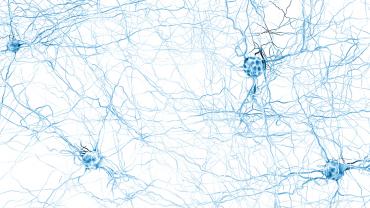
Glutathione is a major antioxidant located in every cell of the human body. It is a tripeptide that contains cysteine, glutamic acid, and glycine residues that can be synthesized and reused endogenously or supplemented exogenously. Glutathione exists in the oxidized and reduced form and affects many cellular functions and overall health.
The concentration of glutathione varies across different tissues. In vitro studies reveal the concentration of glutathione in the central nervous system (CNS) is highest in astrocytes and followed by neurons. The brain utilizes 20% of the oxygen in the body, despite only constituting 2% of total body weight. Glutathione plays an important role in counteracting the brain’s high vulnerability to oxidative stress. Glutathione is also involved in the detoxification of hydrogen peroxide, regulation of DNA synthesis and repair, and stabilization of cell membranes.
Glutathione may be essential for healthy aging. During the aging process, glutathione supports neuronal defense against oxidants like free radicals, reactive oxygen species, and reactive nitrogen species. Studies show that impairment of glutathione function in the brain may lead to CNS function impairment, loss of neurons, and decreased cognitive performance and sensorimotor function. Depleted brain glutathione status is associated with various neurogenerative conditions and diseases, such as mild cognitive impairment and Alzheimer's disease. Furthermore, glutathione depletion may lead to abnormalities in methylation metabolism and mitochondrial function.
A human clinical study (n = 60) used magnetic resonance spectroscopy to quantify endogenous glutathione status in younger and older adults, with a mean of 21.8 years and 72.8 years of age, respectively. The researchers found glutathione levels were higher in older adults compared to younger adults. They suggest that the upregulation of glutathione synthesis is a response to increased brain oxidative stress that occurs with normal aging.
In contrast, postmortem human studies and animal studies reveal that aging is accompanied by decreased glutathione status in both men and women. Upregulated oxidative stress, nutrient deficiencies, or increased environmental toxin burden may result in depleted glutathione status. An individual’s genetic variability in glutathione-associated enzymes (such as glutathione-S-transferase and gamma-glutamyl transferase) may dysregulate glutathione status. In addition, a lack of nutrient cofactors (e.g., selenium, vitamin C, and riboflavin) are required for glutathione production and regeneration, which may be contributing to glutathione depletion.
When endogenous glutathione status is depleted, supplementation may be beneficial. Human clinical trials have reported clinically relevant benefits of supplementing with glutathione or N-acetyl cysteine (a glutathione precursor) to replenish brain antioxidant defense homeostasis, specifically liposomal glutathione.
Glutathione is a vital antioxidant in the body that modulates the redox balance and oxidative stress. Therefore, glutathione may play an important role in healthy aging and overall brain health.
By Danielle Moyer, MS, CNS, LDN